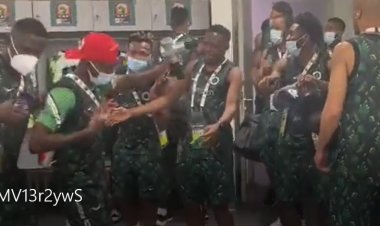Qatar 2022: Vieira academy products may deny England
Diambars Institute, based in Saly, 30 miles south of Dakar, was his attempt to try to ensure that Senegalese talent could reach the top
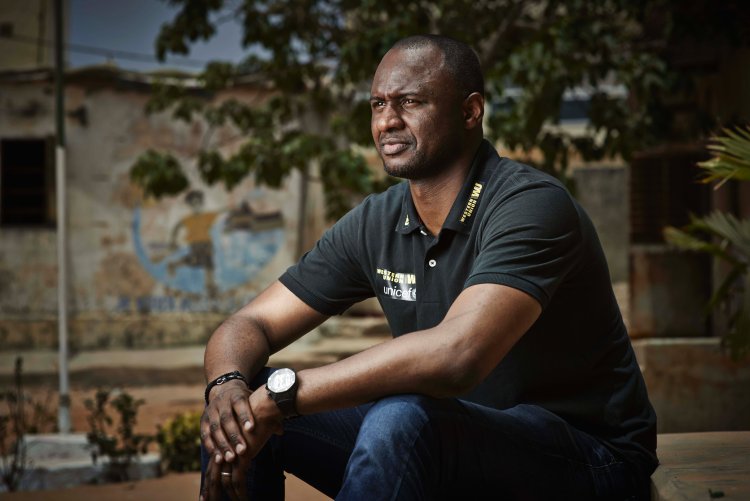
It took football legend Patrick Vieira until his mid-twenties to explore his Senegalese roots. Before then, he was too busy making his way in the game, chasing big prizes including the biggest of them all, the World Cup in 1998. “Only when I got older, more mature, did I start asking questions about my childhood, where I grew up,” he says.
He has certainly made up for lost time since, even collecting a “Best of Africa” lifetime achievement award in October for founding and building an academy in the country of his birth — a centre that has produced graduates who will hope to topple England Sunday when they meet Senegal in the World Cup round of 16.
The involvement of alumni, including Senegal’s midfield linchpin, Idrissa Gueye, on football’s grandest stage is beyond anything Vieira imagined when he first explored the idea of the Diambars academy — it means “fighters” in the local Wolof language — with Bernard Lama, a France team-mate, and Jimmy Adjovi-Boco, a former captain of Benin, almost 20 years ago.
“When we set it up in 2003, the main hope was using football to promote education, not about getting players to the World Cup,” Vieira says. “Our No 1 target was bringing in kids, giving them the chance to play but also to help them with schooling and exams because we could not know who might make it as a professional.
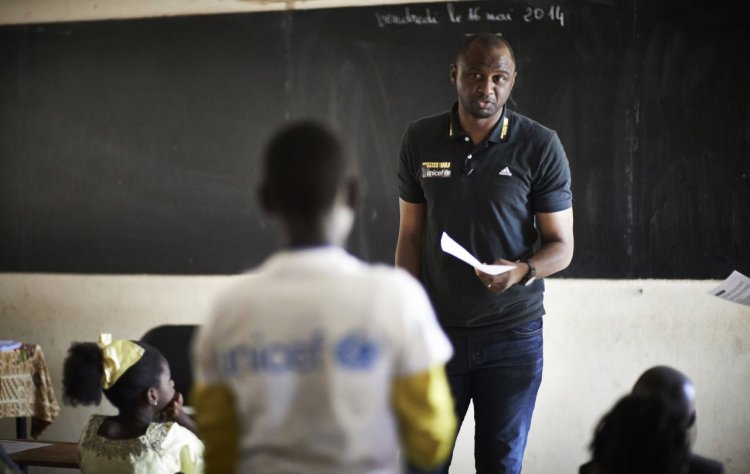
“The second target was to develop themselves as footballers so that the dream to play at the next level, for a big team, might come true. The World Cup? That was too much to hope for but to see it happen makes us very proud.”
Prouder still if they knock out England? Vieira laughs. He is not about to predict doom and gloom for a country where he has made his home as a stellar player and now thriving manager, but he does warn that it will be challenging for Gareth Southgate’s men against the African champions.
“Senegal will be a difficult team for England to play against, very competitive,” he says. “It’s always difficult when you lose a leader, such a big player as [Sadio] Mané, but they have already shown in Qatar that a football team cannot be about one star.
“The spine of the team is strong, players who have competed at the highest level. A goalkeeper in Édouard Mendy, a leader at the back like [Kalidou Koulibaly]. Of course England are favourites but they will know they are in a game.”
In between training his players at Crystal Palace, Vieira has been following Senegal’s progress closely — and the potential route for Sunday’s winners, who are likely to face France in the quarter-finals. Should Senegal prevail against the odds, that would be quite a contest for the Vieira family.
Vieira’s passport is French but, the older he gets, the closer he feels to his African roots. He returned to visit relatives and to spend a few days coaching at the Diambars academy in the summer. He is already making plans to take his children there at the end of this Premier League season.
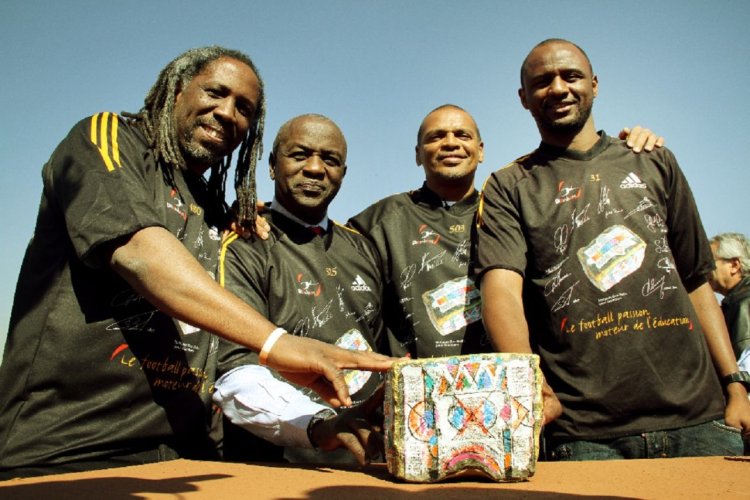
He wants to promote the country and continent he left as a child when his mother, Emilienne, emigrated from Dakar, the capital of Senegal, to set up home in Paris before summoning her offspring. Vieira was eight when he first moved into Trappes, and later the satellite town of Dreux, and has always attributed his fierce competitiveness and work ethic to watching his mum work two jobs as a single parent in a foreign country to provide for the family.
It was a drive that brought him remarkable success for Arsenal and France and, as a player, he started exploring his roots in Africa, visiting relatives and developing the idea of an academy to help to give opportunities to those in Senegal with a sporting talent.
During a famous tunnel spat when Arsenal faced Manchester United, Roy Keane turned to Vieira at Highbury and chided him for his charity work: “If you love Senegal so much, why don’t you f***in’ play for them?”
“I left the country when I was eight, I grew up in the French system and the opportunity was never discussed or offered to me,” Vieira says. “I was never approached by anyone from Senegal so the question was never on the table.”
Diambars Institute, based in Saly, 30 miles south of Dakar, was his attempt to try to ensure that Senegalese talent could reach the top. What began almost two decades ago as a pitch and a changing room is now a modern complex including accommodation for about 100 young footballers, a gym and pool. Local coaches are supported to pick up the highest qualifications.
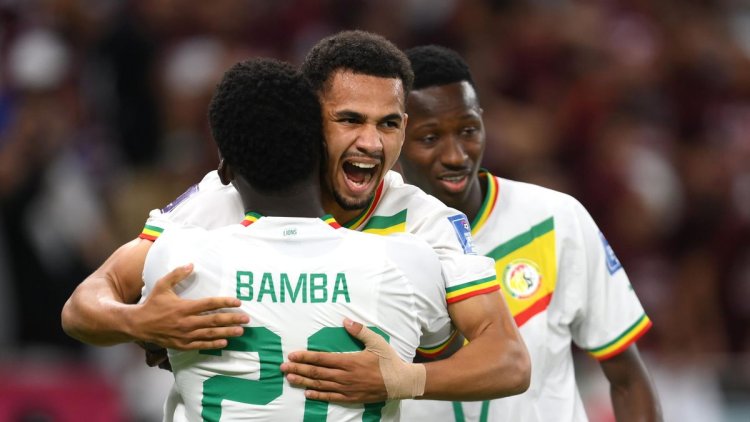
“Well run and self-sufficient,” Vieira says of a non-profit organisation that has been able to raise plenty of funds by helping dozens of players reach European clubs as well as leagues in Africa and Asia. Among the graduates are Bamba Dieng (Marseille), Pathé Ciss (Rayo Vallecano) and Gueye, back at Everton after several seasons with Paris Saint-Germain, who are part of this Senegal squad.
“Idrissa Gueye is a perfect role model for what has been done at Diambars,” Vieira says. “He’s an excellent professional with a lot of humility and a good man, which is just as important.
“What is success? First of all, we try to teach anyone who comes to the academy the skills that they will need in any job. We show them about taking responsibility in their lives. They come to learn football but we give them lessons in leadership, in life.
“There are many professional footballers from Diambars but we should do more to tell the stories of those who do not go on to play football but succeed in other ways.”
When he picked up that award in October, Vieira took the opportunity to express his pride in the work and his roots — “You know, it is always good for people to know that I am African, to remind them that I was born in Africa” — but also the need to keep campaigning for
As he said then, the barriers remain. “We live in a society where it is difficult for a young African person to succeed, because I strongly believe that a lot of doors are closed,” he noted.
The success of African teams in this World Cup can do more to help the cause. “We’ve had more African coaches of African teams at this World Cup,” Vieira says. “That is one sign to me that we keep making progress even if sometimes it can feel much slower than we would like.”
If Aliou Cissé could lead Senegal to a famous victory over England in the Al Bayt Stadium, that would be one of the most notable and high-profile successes in the history of African football. Vieira would certainly have played his part.












